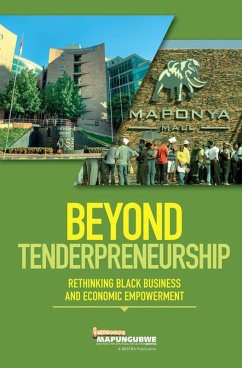Black Economic Empowerment (BEE) policies have been a central pillar of attempts to overcome the economic legacy of apartheid. Yet, more than two decades into democracy, economic exclusion in South Africa still largely re?ects the fault-lines of the apartheid era. Current discourse often con?ates BEE with the so-called ¿tenderpreneurship¿ referred to in the title, namely the reliance of some emergent black capitalists on state patronage. Authors go beyond this notion to understand BEE¿s role from a unique perspective. They trace the history of black entrepreneurship and how deliberate policies under colonialism and its apartheid variant sought to suppress this impulse. In the context of modern South Africa, authors interrogate the complex dynamics of class formation, economic empowerment and redress against the backdrop of broader macroeconomic policies. They examine questions relating to whether B-BBEE policies are informed by strategies to change the structure of the economy. These issues are explored against the backdrop of the experiences of other developing countries and their journeys of industrialisation. The relevant black empowerment experiences of countries such as the United States are also discussed. The authors identify policy and programmatic interventions to forge the non-racial future that the constitution enjoins South Africans to build.
Dieser Download kann aus rechtlichen Gründen nur mit Rechnungsadresse in A, D ausgeliefert werden.









